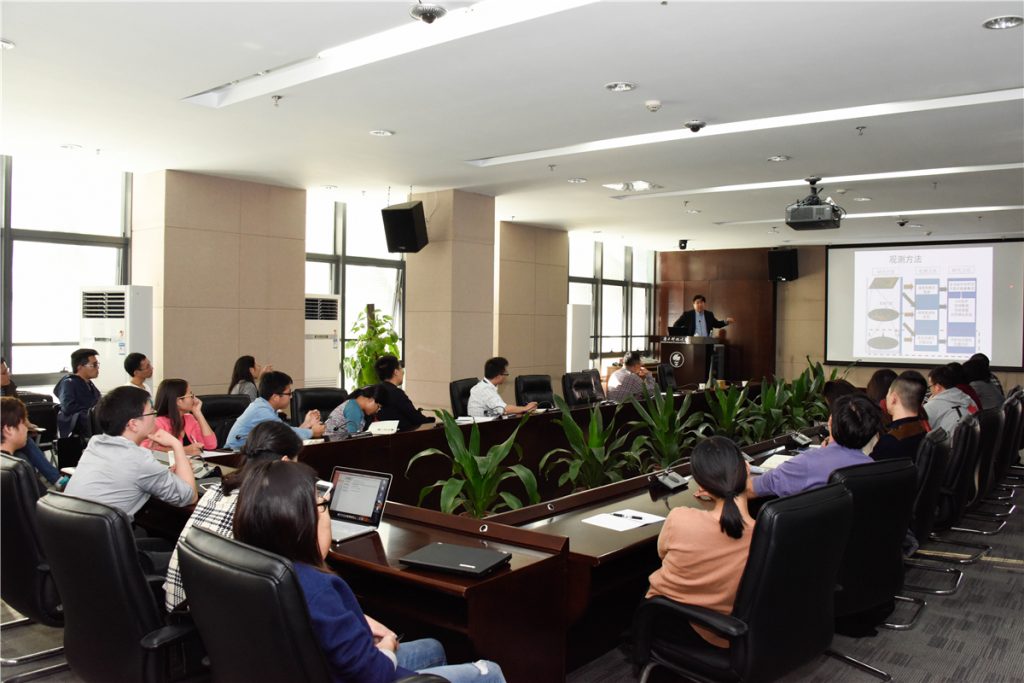On the afternoon of Dec. 12, 2016, Fu Bojie, academician of Chinese Academy of Sciences and Director of Academic Board of Research Center for Eco-Environmental Sciences, Chinese Academy of Sciences, at the invitation of 97th Lecture Series, gave a lecture entitled Impacts of Land Use Change on Ecological and Hydrological Effects at Conference Room No. 401 in the Administrative Building. The lecture was chaired by Vice President Tang Tao.

Lecture scene
Fu Bojie, academician of Chinese Academy of Sciences, academician of the Third World Academy of Sciences, foreign academician of Royal Society of Edinburgh, and the Director of Academic Board of Research Center for Eco-Environmental Sciences, Chinese Academy of Sciences. He also serves as the Director of Department of Earth Sciences, National Natural Science Foundation, Vice Chairman of International Association of Ecology and other positions, mainly responsible for researches on physical geography and landscape ecology. He has made systematic innovations in land use structure and ecological process and landscape ecology.
Fu Bojie’s lecture mainly focused on the following three topics: 1. the concept, issues and development trend of land use changes; 2. ecological and hydrological effects at different scales; 3. comprehensive analysis and regional integration. Academician Fu explained ecosystem services and functions in a systematic way, as well as the impacts of ecosystem on humanity and human needs. Conclusions from analyses on original information of one phenomenon may be significantly different from those analyzed with different scales and in different fields. Academician Fu pointed out that under natural conditions, lands have higher biodiversity and material diversity, better cultural appreciation value, the strongest ability to adjust ecological system, but such ability will be gradually reduced with the aggrandizement of the land use intensity caused by human beings. Nevertheless, if we change ways of land use and make proper use, the ecological system may not be adversely impacted. Ecological system service is related to human beings and eco-system itself, which can be optimized by means of ecological management. He took loess plateau as an example for many times to interpreted main changes there after returning lands from farming to forests or grasslands, and the different effects of different vegetation under different geomorphic and hydrologic conditions. He emphasized that, “the formation of ecological environment is a long-term process, and long-term monitoring on data is one of the key factors to the sustainable development.

Q&A Session
In Q&A session, after listening to audiences’ questions, Academician Fu elaborated the abundant contents and unique charm of geography, explained the influences of policies on ecological services, and shared his methods for data collection.
Proofread By
Photo By